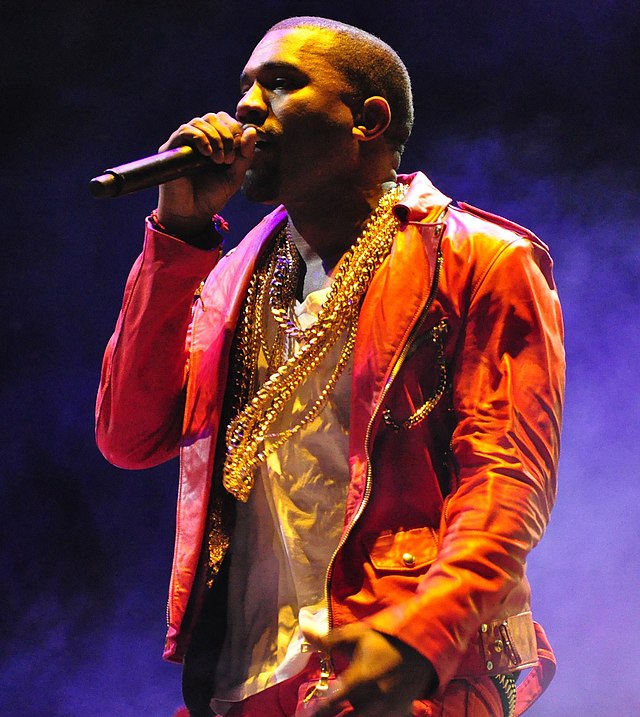Even amidst a double standard of scrutiny, this dangerous narrative must be condemned
By RUMA POUDELL — arts@theaggie.org
American rapper and fashion designer Ye, formerly known as Kanye West, has come under fire for a recent string of antisemitic and racist comments and actions.
These include instances such as the time Ye wore a t-shirt with the slogan “White Lives Matter” printed on it, which is an organization created to uphold white supremacy in response to the Black Lives Matter movement. He also voiced his false belief that George Floyd’s death, proven to be at the hands of law enforcement, was instead due to the drug fentanyl.
Most recently, he appeared on a podcast on which he claimed to “see good things about Hitler,” amongst other brazenly antisemitic comments. This blatant display of hatred led to many companies, colleagues and others publicly cutting ties with the 45-year-old musician.
“These kinds of horrible statements have no place in our public discourse,” said Kevin Johnson, the dean of the UC Davis School of Law. “[His actions] demonize and demean real people with real emotions, even if you can’t snuff it out.”
Ye was once a figure that many looked up to for his deeply personal music and cultural presence, as well as his lyrics that offered meaningful insight into race issues in the U.S. Having someone like this begin to perpetuate such hateful and violent rhetoric can be emotionally damaging for some.
In addition, certain reactions to his actions perpetuate the harmful notion that people with mental health disorders are “crazy” and something to gawk at rather than understand, empathize with and seek to help. Ye has notably brought his bipolar disorder diagnosis into the public eye — a decision that has arguably shed light on the shortcomings of modern society in terms of understanding mental illness. Public perception of the rapper’s diagnosis is varied, with Ye himself even noting that “‘crazy’ is a word that’s not gonna be used loosely in the future.”
Those with an understanding of bipolar disorder may sense that his recent outbursts might be a result of a manic episode and might show a dire need for medication or counseling. However, his mental health disorder should not be an excuse for his offensive actions and use of discriminatory language. Some mental health experts have stated that mental illness does not excuse harmful behaviors, especially on such a large scale; it simply provides some explanation for why someone may be acting a certain way.
Likewise, just as it is vital to be sensitive when discussing mental health concerns, it is also critical to consider the increasingly dangerous implications these episodes can have on others.
“We’ve seen […] other related areas where hate speech can also lead to hate violence,” Johnson said. “We saw President Trump target Chinese people using racist tropes and stereotypes. After that, we saw a great increase in hate violence directed at Asian Americans.”
So, what can we do to challenge this rhetoric? Well, according to Johnson, both individuals and businesses can choose to disengage with the artist’s content.
“If you don’t like the language of a particular artist, one way of registering that objection is through taking your business elsewhere,” Johnson said.
Following this line of thought, Adidas has cut brand deals with Ye, and so have other influencers, partners and even banks — but what about what we can do as individuals?
“It’s really a gray area,” said Yuri Khadka, a second-year law student at McGeorge School of Law. “Separating art from the artist boils down to personal morals; we can be wary of technical validity for his actions and claims and how it can be used to cover up bigotry.”
The pushback against Ye is justified, but it also raises a question: why does society seem so quick to push back against African American public figures when they come to face criticism?
“In some ways, it seems interesting to me this comes around the same time as Kyrie Irving’s suspension for similar hateful comments,” Johnson said. “It is the case that the people who seem to be subject to punishment and attack right now are African Americans, when others use similar distasteful language and don’t suffer repercussions; President Trump being one of them.”
While Ye may be entitled to his own perspective, there is a difference between an opinion and dangerous hate speech. Hopefully, given the severity of the comments made by him in the past few months, we will see increased backlash from the public. This kind of violent and outright dangerous narrative should not be accepted, regardless of how talented the person propagating it is.
Written by: Ruma Poudell — arts@theaggie.org




